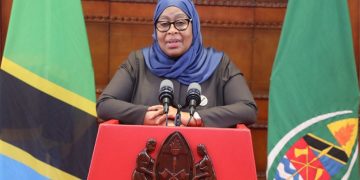Mark Lowcock & Raj Shah
When the Covid-19 pandemic began in March 2020, Afghanistan had only 300 ventilators and two intensive-care units. Early epidemiological models predicted that the country, with a population of about 38 million, would experience a peak of up to 520,000 cases and 3,900 deaths per day by the beginning of summer. Facing the prospect of ten million cases within a matter of months, aid workers and government officials braced for a public-health catastrophe.
To help decision-makers understand where to focus their limited resources, the United Nations Office for the Coordination of Humanitarian Affairs (OCHA) and The Rockefeller Foundation used actual data for Afghanistan – including Covid-19 infection rates and locations of healthcare facilities – to project the number of cases, hospitalisations, and deaths over a four-week period. This more realistic forecast helped officials prepare for a peak in cases and deaths that proved to be flatter and later than other models were projecting. Accurately predicting needs enables a more effective humanitarian response.
But models are only as good as the data on which they rely. And, to prepare for the next crisis, the world needs to obtain and share better data.
The guiding principle behind our model, which we developed with the Johns Hopkins University Applied Physics Laboratory, was to support short-term operational decision-making to protect and save more lives in humanitarian crises. In addition to Afghanistan, we used the model in the Democratic Republic of the Congo, Iraq, Somalia, South Sudan, and Sudan. We included Covid-19-related data adjusted for underreporting, as well as data on mobility patterns, health-care infrastructure, and underlying vulnerabilities of the population resulting from food insecurity or medical comorbidities such as diabetes.
Our experience of building a predictive model, and its use by public-health officials in these countries, showed that this approach could lead to better humanitarian outcomes. But it was also a reminder that significant data challenges, regarding gaps and quality, limit the viability and accuracy of such models for the world’s most vulnerable countries. For example, data on the prevalence of cardiovascular diseases was 4-7 years old in several poorer countries, and not available at all for Sudan and South Sudan.
Globally, we are still missing about 50% of the data needed to respond effectively in countries experiencing humanitarian emergencies. OCHA and The Rockefeller Foundation are cooperating to provide early insight into crises, during and beyond the Covid-19 pandemic. But realizing the full potential of our approach depends on the contributions of others.
So, as governments, development banks, and major humanitarian and development agencies reflect on the first year of the pandemic response, as well as on discussions at the recent World Bank Spring Meetings, they must recognize the crucial role data will play in recovering from this crisis and preventing future ones. Filling gaps in critical data should be a top priority for all humanitarian and development actors.
Governments, humanitarian organisations, and regional development banks thus need to invest in data collection, data-sharing infrastructure, and the people who manage these processes. Likewise, these stakeholders must become more adept at responsibly sharing their data through open data platforms and that maintain rigorous interoperability standards.
Where data are not available, the private sector should develop new sources of information through innovative methods such as using anonymized social-media data or call records to understand population movement patterns. Data sharing, of course, depends on trust. The world must therefore heed the World Bank’s recent call for a new social contract for data based on shared social and economic value, equitable benefit, and fostering confidence that data will not be misused by those who collect it.
The global humanitarian system is highly effective, but today’s needs are unprecedented. A record 235 million people worldwide, up nearly 40% from 2020, are expected to need humanitarian assistance and protection this year. Hunger is on the rise, internal displacement is at its highest level in decades, severe weather events are more common, and disease outbreaks are increasing. Meanwhile, the gap between humanitarian needs and the financing available to address them is growing wider.
High-quality data enable policymakers facing crises to align limited resources with greatest need, and the Covid-19 pandemic has highlighted the need for more of it. The world must take that lesson to heart by investing in the data infrastructure and human capacity required to get ahead of crises, predict future needs, and trigger responses earlier. The return in lives saved would be enormous.
Mark Lowcock is UN Under-Secretary-General for Humanitarian Affairs. Raj Shah is President of The Rockefeller Foundation. ©Project Syndicate.






































